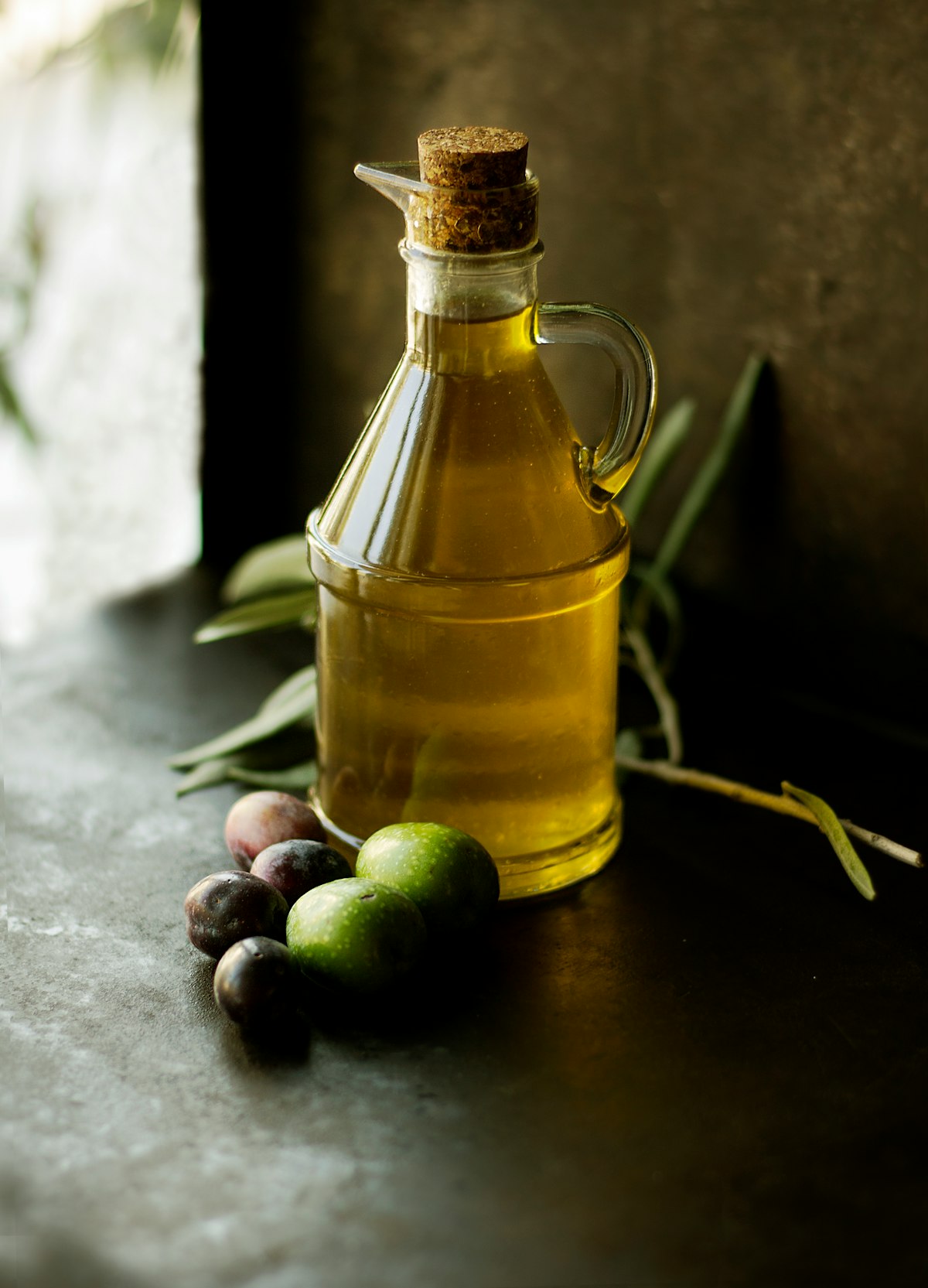Health benefits of extra virgin olive oil
Since ancient civilizations, the nutritional and therapeutic value of olive oil has been known. The nickname "liquid gold" was given to it by the famous Homer.

The nutritional and therapeutic value of olive oil has been known since ancient civilizations. The nickname "liquid gold" was given to it by the famous Homer. Nowadays, thanks to technological progress, its properties are better and better known. Science is gradually proving right concepts that are obvious. Extra virgin olive oil is simply the juice of the olive tree, obtained by mechanical procedures that have been improved century after century, but the idea is the same. It consists of squeezing the olive, as if it were an orange, only it is somewhat more difficult. In this article we are talking about Extra Virgin Olive Oil, any other denomination is a refined olive oil or oil of much worse quality.
Olive oil in the digestive system
The main compound in olive oil is oleic acid, which is the vegetable fat best tolerated by the digestive system. For example, because it contains vitamin E, it helps to reduce ulcer lesions, aiding healing. It is also a component that delays the oxidizing process of the cell membrane. It also aids digestion, facilitates the absorption of nutrients, and has a beneficial effect on people who suffer from chronic constipation. The importance of olive oil "juice" as a nutritional supplement lies, for example, in the peroxidation of lipids. The latter plays an indispensable role in the functioning of the liver, development, and growth of the reproductive and nervous systems.
In childhood and old age
Olive oil provides the necessary fatty acids to children in the growth period, the insufficiency of which can delay growth, lead to liver, skin, or metabolic disorders. In fact, in breast milk, between 4% and 5% of calories are provided by unsaturated fatty acids, the same as in OC. These data, based on numerous scientific studies, show that the balanced proportion of fatty or oleic acids in olive oil places it in a privileged place from a nutritional point of view that optimally affects the development of the newborn or child. In the case of elderly people, olive oil helps to increase HDL cholesterol values, preventing vascular alterations in the brain.
Arteriosclerosis and olive oil
We have all heard that this disease acts mainly in senescence, although perhaps it appears earlier and earlier, so basically, it belongs to the previous point, but it is something more extensive. In industrialized countries this disease is one of the main causes of death, it consists of the accumulation of cholesterol in the form of yellowish plaques on the inner walls of the arteries, clogging the blood circulation. The main causes of this are, for example, bad eating habits, hypertension, smoking, or genetic disposition.
However, we must be careful, although it is true that the consumption of fats favors the lipid metabolic disorder and consequently increases cholesterol levels, not all cholesterol is bad, hence it follows that not all fats are bad. There are two types, HDL cholesterol which has a protective effect on health is known as good cholesterol, and is the main component of oleic acid or monounsaturated fatty acid.
Saturated fatty acids are those that raise the level of LDL cholesterol, the so-called bad cholesterol. For example, in seed oils, such as sunflower oil, the main compound is a polyunsaturated fatty acid, which works in both ways, reducing both good and bad cholesterol at the same time. But only olive oil, in its extra virgin quality, contains monounsaturated fatty acids and it is the one that reduces only LDL cholesterol. These data are corroborated by different studies, during the last decades, both from the Iberian Peninsula and the United States.
According to scientific studies, a diet containing monounsaturated fatty acids (the main component of olive oil) has been shown to reduce glucose levels, thereby reducing the need for insulin.
Properties for the immune system
According to the study of the University of Jaen (Spain), precisely from the department of microbiology, it has been concluded, studying the effects of a diet rich in olive oil on the human immune system, that it produces beneficial results in inflammatory processes, increasing the body's defenses. But also other Spanish universities such as the Complutense University of Madrid have carried out scientific studies to establish the properties and benefits of olive oil in our body, since there is still a lot of research to be done, as the uses of this "liquid gold" have multiplied over the years. For example, since it contains Vitamin E, it protects against skin conditions, in short, it helps to heal wounds or relieves burns, chafing, or rashes.
Moreover, there are other curious uses, for example, using olive oil with the egg we can create something like homemade mayonnaise, which in addition to being a delicious food serves as one of the best hair masks or softening cream. We can use it as a moisturizing cream, take a spoonful at breakfast for constipation or make a homemade soap of exceptional quality.
Cooking with liquid gold
We cannot forget the main use of olive oil, I believe that the main benefit of this "liquid" is to give flavor to our best dishes. In Spain and all over the world people can no longer conceive of a salad without it. A little olive oil, some Modena vinegar, a pinch of salt, and the salad become a delicacy. Its incomparable flavor together with its inexhaustible source of health has made it an essential product in any kitchen in the world.
It is an oil that preserves all the flavor and smell of the fruit of the olive tree. It is an organic product that should not have any additives, it should not undergo any chemical process... the Extra Virgin is the pure juice of the olive, separated from vegetable water. The rest of the oils need some kind of refining or chemical process, where the smell, taste, and color disappear. That is why any dietician recommends using it in dishes that are consumed raw, such as salads or sauces.
In raw foods is where extra virgin olive oil has all the advantages, in fried foods it also has excellent qualities to be the king of oils. For dishes that need to be fried in an abundant amount of oil, the oil must withstand very high temperatures. The food remains at a temperature of about 100 degrees until all the water evaporates and at that point, the fat in the oil does not penetrate the food. Here olive oil is a healthy and safe option, recent studies show that it does not penetrate the food, but remains on the surface, while other fats penetrate partially or even completely.
Perhaps one of the reasons for this is that olive oil is rich in natural antioxidants (tocopherols and polyphenols) for which a high and prolonged temperature is needed to produce alterations. These alterations are processes in which fats auto-oxidize in the presence of oxygen and high temperatures. Perhaps here we could dispense with extra virgin olive oil and use something with less quality, such as refined or virgin oil. Since the extra virgin, for these uses perhaps it is a little expensive since for frying a lot of oil is needed.
Recommendations at the time of purchase and consumption
It is important to mention that all these data do not mean that we have to consume olive oil in large quantities, simply that at the time of going to the supermarket we can substitute saturated fats such as butter as far as our pocket allows. In addition, the extra virgin olive oil, outside the producing countries has a fairly high price reaching about 5 or 6 euros per bottle (8 to 10 dollars). It is also true that many countries are jumping on the bandwagon of olive plantations, such as China or Iran since they have a climate quite similar to the Mediterranean. But in the meantime, the king of olive oil is Spain. In the extensive Guadalquivir valley alone, 40% of the world's olive oil can be produced each year.
For those who live in the Iberian Peninsula, it is highly recommended to contact a local supplier or farmer when buying a good extra virgin olive oil, as this way you get the oil of excellent quality and direct from the producer, thus helping the sustainability of the field and acquiring a product of unquestionable quality.
Author: Anton Zekeriev. Sources of information are the olive oil portal SitiOliva and some of the extensive information from Wikipedia, and Revista Vinculando




